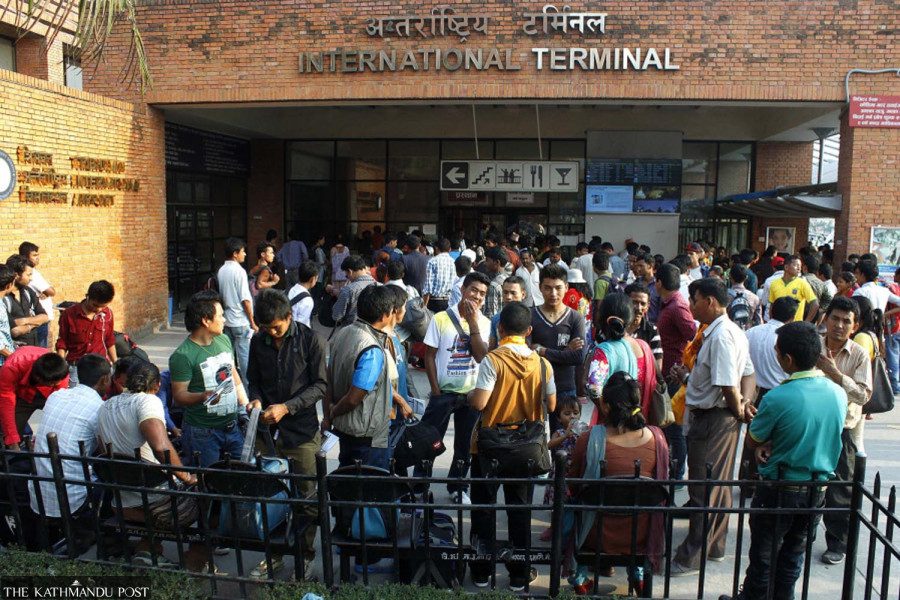Editorial
Leaving on a jet plane
If things continue as usual, the stream of people’s exodus could soon turn into a deluge.
While around 61 percent of all eligible voters are estimated to have cast their ballots in the November 20 elections, on the same day over 1,700 of them packed their bags and left the land to work abroad. Lack of good jobs at home, coupled with runaway inflation that was eating into even their meagre earnings, would have left many of them with no other option. In their minds, voting would have been a distant concern. Before the 2017 federal and provincial elections, the political parties made tall pledges, including providing jobs to all citizens. But their promises never came to fruition. This fiscal year, over 1700 people, on average, have been leaving the country every single day, and the numbers are expected to only increase.
But the parties don’t stop promising. In their manifestos for the latest elections, the CPN-UML has vowed to create 500,000 jobs a year, the CPN (Maoist Centre) around 400,000 a year, while the Nepali Congress pledged 250,000 new jobs. Even new parties have joined the fray. The Rastriya Swatantra Party, with its central plank of job creation and easing the lives of migrant workers, envisions a society where no one has to leave the country to work abroad. The problem again is that the manifesto is short on specifics.
The issue is not just lack of jobs. Even those with stable jobs have seen their earnings stagnate and their purchasing erode as inflation continues to set new records. Official inflation rate hit a 74-month high of 8.64 percent this September; unofficially, say economists, inflation could be at least twice as worse. If the state of the Nepali economy continues to deteriorate, with dwindling exports and little foreign exchange reserves, the stream of people’s exodus from the country could soon turn into a deluge.
There have been some efforts at job-creation, for instance through the Prime Minister Employment Programme. But the programme has been hobbled by accusations of nepotism and corruption, which is partially why its total amount was cut from Rs12 billion in the previous fiscal to Rs7.05 billion this fiscal year. There is also a lack of harmony, even among government agencies, on vital economic and fiscal policies: The central bank and the ministry of finance, for instance, often seem to be working at cross-purposes. This again shows the lack of seriousness on the part of the political class and senior bureaucrats to work for the benefit of common folks.
According to informal estimates, up to 4 million Nepalis are working abroad, which comes to over one in every 10 Nepalis. The absence of such a large chuck of the population undoubtedly lowered the voter turnout this time. But then would they have voted had they stayed behind? And will they have any reason to vote if, tomorrow, they get the right to cast their ballots from abroad? As elections become a pure numbers-game, citizens in and outside the country have grown increasingly disillusioned with Nepali political process. There could be no greater threat to the health of Nepali democracy than its own citizens coming to believe that their elected representatives are incapable of looking after their interests.




 18.12°C Kathmandu
18.12°C Kathmandu














